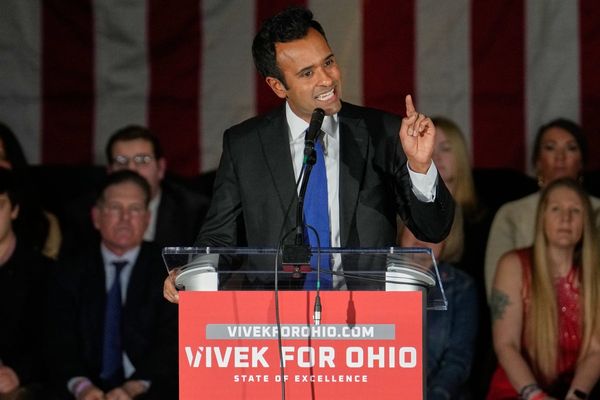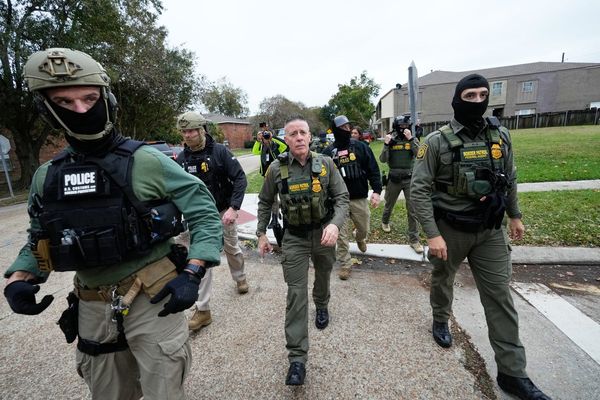
As a teenager, Paul Burston remembers going to Crossways, his local nightclub in Bridgend, South Wales. ‘It’s long gone now,’ he says. ‘You had to cross the motorway to get to it. Hence the name.’ One night he heard two records in quick succession, moulded from the exciting gay disco sub-genre, ‘high energy’. Bronski Beat’s ‘Why?’ opens with Jimmy Somerville singing the unequivocal line, ‘Contempt in your eyes /As I turn to kiss his lips’. In Frankie Goes To Hollywood’s ‘Two Tribes’, Holly Johnson poses a learned question: ‘Are we living in a world where sex and horror are the new gods?’
It was 1984. Maybe we were. Something celestial and elemental stirred in the young Burston. ‘I remember distinctly feeling that there was more to this music than the life I was living.’ Like many working-class gay boys growing up in the regions, he had a natural tenderness toward disco, at a time when suburban mums might worry about these things in their adolescent sons. ‘This music was like that, but with added testosterone. It came from the groin.’
This music was like disco, but with added testosterone. It came from the groin
Within a year, Burston had upped sticks, moved to London and stepped over the threshold of the subterranean netherworld waiting for him at Heaven, the powerhouse Charing Cross gay nightclub synonymous with the liberation of first the capital, then the country. On Saturday nights, resident DJ, London’s garrulous, unsung gay cultural pioneer, Ian Levine, would play wall-to-wall high energy hits, a fabulously unapologetic, slutty new sound. Plucked from the shelves of the Chinatown record store Record Shack, these insistent tunes made the unlikely trip from the leather bars of Earls Court — briefly dubbed ‘Girls’ Court’ by campy locals due to its dominant clone culture — to regional Yates’s Wine Lodges. Their soaring, climactic sounds bridged a previously unconnected sex gap between gay and straight dancers.
Burston has been thinking a lot about this epoch. In his highly recommended memoir, We Can Be Heroes, probably the gay book of the year, he documents with poetic transparency how coming of age in the 1980s turned him from plucky young outsider to an accidental power player in LGBTQ+ agitprop politics. As writer, TV presenter, activist and agent one queer provocateur, there is not a front line of UK gay politics Burston hasn’t manned.

These efforts were set against a time, the Eighties, that was resolutely, societally, calculatedly antagonistic to gay people. The papers hated us. Religions rejected us. Police hounded us. Politicians used us as a battering ram for outmoded, fictionalised morality scares. The medical apocalypse of HIV/Aids decimated our community. As a final, damning flourish, Clause 28 demanded state schools silence us.
One peculiar cultural anomaly earmarked all this. The daytime might’ve looked bleak but the night was a playpen of frenzied good cheer. The thrilling fightback to institutional prejudice was soundtracked by the explosive, rabid sex noise of high energy, the cum-shot following Seventies disco’s extensive foreplay. It lubricated the passage of clandestine, marginalised cultures into the mainstream.
A lovingly curated new compilation album, Box of Sin, pieced together with a connoisseur touch by Mark Wood, one half of the Duckie DJ duo The Readers Wifes, collates the sound of the gay disco throughout the 1980s. The cover shot features the profile of a man in a leather muir cap with a bulging moustache, like a Greek god of the twilit gay arts. The artwork all comes from The Bishopsgate Institute, London’s most trusted LGBTQ+ archive.
Wood asked Burston to write the sleeve notes, a heartfelt piece of prose in which he condenses the exact feeling of first stepping into a gay disco back then to one sentence. ‘I’m terrified that somebody might speak to me and equally terrified that nobody will.’ Burston says that Wood’s selections ‘were like stepping into my brain’. A truism underpins the project that stands up to constant repetition. Beneath the political animosity of the Eighties there was a bunch of people searching for physical and emotional intimacy, trying to forge pockets of visibility out of nothing. High energy pinpointed it all, with ear-popping candour.
Box of Sin is a whole costume drama of a compilation, recalling a time when pop music carried a political undercurrent sometimes just by its mere existence. The opening bars of some of the 54-track compilation’s high points, evergreen nightclub classics (Company B’s ‘Fascinated’, Sheryl Lee Ralph’s ‘In The Evening’, The Flirts’ ‘Passion’), have about them not just the sound, but the exotic aroma and physicality of the night-time they defined. Wood’s selections are Catholic in their variance, making explicit the influence high energy had on a whole faith system of sound emerging out of the transcendent gay disco experience. It is no accident that our favourite nightclub was Heaven, our icon Madonna and our house music anthem, Joe Smooth’s ‘Promised Land’ (also included). If the nightclub was once religion, Box of Sin is a winningly comprehensive new hymn sheet. ‘I always loved the idea of being in an underground place, associated with the idea of hell,’ says Burston, ‘that is called Heaven.’
Neil Tennant called something on a record ‘the poppers moment’. I loved that
These timeless, evocative records, an explosion of ecstasy, passion, defiance and filth crossed over to mass market with a significance that still resonates. High energy, the sound first distilled by San Francisco producer Patrick Cowley on Sylvester’s earth-rattling disco opus, Step II, oversaw the transubstantiation of Joy Division into New Order. It gave us the metronomic domestic dramas of the Holy Trinity of Eighties British gay pop, Bronski Beat, Pet Shop Boys and Erasure. It put countercultural titans, Pete Burns and Divine, on teatime TV. Pete Waterman built a whole empire studded with oddballs, soap-opera starlets and Page 3 models out of it at the Stock Aitken Waterman Hit Factory on Borough High Street. One of the more surprising, if welcome, selections on Box of Sin is the full original 12” mix of Samantha Fox’s SAW moment, ‘Nothing’s Gonna Stop Me Now’, a forgotten gay favourite long before the model had come out as lesbian.
As disco begat high energy and high energy mutated into house, all carefully aggregated on Box of Sin, the music of the Eighties gay nightclub oversaw a whole behavioural breakdown of entrenched laddishness, as straight men leaned into the physical communion of dancing together on MDMA. As if out of nowhere, dousing your grinning best friend in a bottle of water in a public toilet and giving him a massage with Vicks Vaporub became heterosexual disco etiquette. Equally, the music of that time can be heard throughout the work of thoughtful, interior, contemporary artists Robyn and Romy. The central tenets of high energy, gay music that catches straight listeners off-guard are plastered all over Mark Ronson’s work for the Barbie soundtrack, probably the album of 2023. It is the sound of poppers. It endures.
‘When I interviewed Neil Tennant for Attitude,’ recalls Burston, of the 1994 Pet Shop Boys cover story in which the singer finally spoke for the first time, explicitly, of his gayness, ‘I remember us talking about gay disco music. I was basically trying to get him to admit that Pet Shop Boys were gay disco. He referred to something on a record as “the poppers moment”. I loved that.’ Such was the preponderance of amyl nitrate in the Eighties that a rumour persisted it was filtered through the air conditioning at Heaven. ‘We all know what that is, the moment where the record soars and becomes hyper-sexualised. It’s the bit where everyone opens up their bottle and takes a snort.’
The legacy high energy left on gay nightclubs was more fractured. As ecstasy cheapened, narcotics became less empathetic and the effects of a major public health crisis more alarming, the Nineties answer to high energy was the briefly popular underground sound of Nu-NRG. This demonically hard and fast variant of techno was spearheaded by the late DJ Tony DeVit at Laurence Malice’s legendarily wasted, muscle-boy Clerkenwell Sunday morning party, Trade.

The Tom of Finland physical stereotype of gay club culture gave way to the gay raver on the one hand, and a more vainglorious evocation of Mark Wahlberg in his billboards for Calvin Klein briefs on the other. The sight of wide-eyed, topless, gurning gay men pumped up on steroids and cocaine spilling on to Farringdon Road became an unusual arbiter of the early Nineties east London’s Sabbath. ‘Because the [gay club] scene became such a success, one size no longer fit all,’ says Burston. ‘So you get gay indie nights, gay R&B nights, gay electronica.’ The next bacchanal to define London was Horse Meat Disco, a first opportunity for gay nightlife to enter the nostalgia circuit and look back on itself with dewy-eyed circumspection. ‘I’m not sure there is one gay sound now,’ says Burston.
Perhaps this was the great triumph of the gay Eighties, against some startlingly antagonistic odds. ‘High energy represented the mood of our queer clubs back in the day,’ says much-loved London nightlife fixture, Princess Julia. ‘It was pure drama. It was the music we owned.’ Replicating the fable of the loaves and fishes, we generously handed it over to the masses to multiply. This transference of gay culture to the straight world was anathema to a grim low-point in British politics. ‘These records are about liberation, freedom, physical pleasure,’ says Burston. ‘And who can’t identify with that?’
‘Box of Sin’ is out 29 Sep, £52.99 (roughtrade.com)







